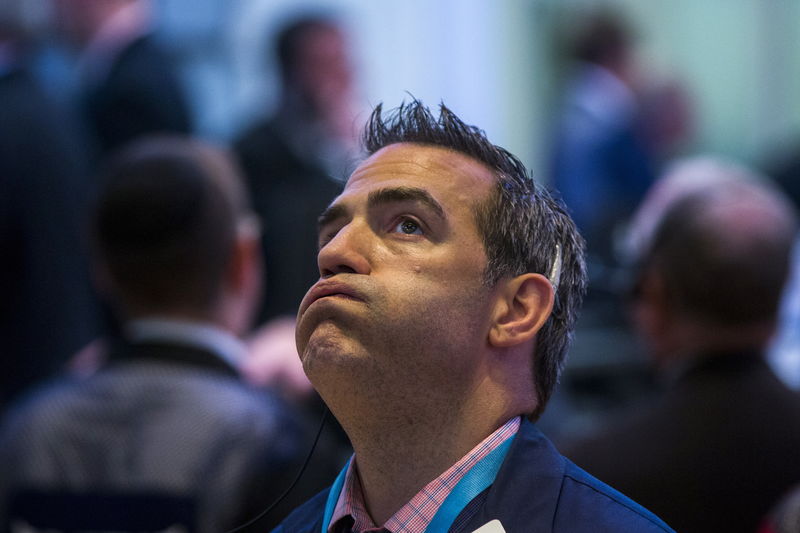Is this U.S.-China selloff a buy? A top Wall Street voice weighs in
By Yasin Ebrahim
Investing.com -- The S&P 500 slipped Tuesday as big tech continued to stumble as Treasury yields climbed on signs the consumer remains upbeat and worries about a banking crisis ease.
The S&P 500 fell 0.4%, the Dow Jones Industrial Average slipped 0.3%, or 82 points, and the Nasdaq fell 0.80%.
Treasury yields added to their gains from a day earlier as data showed that consumers are still upbeat about the economy, suggesting that the Federal Reserve may have more work to do.
The consumer confidence index rose to 104.2 in March from an upwardly revised 103.4 in February, topping economists' forecast of 101.0.
“The confidence data suggests that the Fed needs to continue to push forward with the hawkish policy guidance that they have been delivering for the last few months,” Jefferies said in a note.
The rising rate environment continued to pressure tech stocks, with big tech leading to the downside.
Apple (NASDAQ:AAPL), Meta Platforms (NASDAQ:META), Alphabet (NASDAQ:GOOGL), and Microsoft (NASDAQ:MSFT) were more than 1% lower, with latter coming under regulatory scrutiny.
Germany’s antitrust watchdog said on Tuesday that it was probing Microsoft to establish whether the tech giant's market power may warrant an investigation into potentially anti-competitive practices.
A dip in semiconductors also weighed on broader tech ahead of the chipmaker Micron Technology Inc's (NASDAQ:MU) results due after the markets close.
Micron’s quarterly results are expected to reflect lower demand for memory amid a soft backdrop for cloud and PC, while elevated inventories remain a drag.
Energy rose more than 1%, however, to partly offset the broader market losses, with Occidental Petroleum Corporation (NYSE:OXY), Valero Energy Corporation (NYSE:VLO) and Phillips 66 (NYSE:PSX) leading to the upside.
Warren Buffet increased his stake in Occidental Petroleum Corporation to 23.6% after buying 3.7 million shares of the oil major in the past three days, a regulatory filing showed.
In other news, LYFT (NASDAQ:LYFT) reversed gains after David Risher, who was appointed new chief executive and set to take the helm on April 1, ruled out a sale of the company. Risher said that Lyft wasn't for sale and would be focused on its ride-sharing business.
The appointment move, which was briefly welcomed by the market, still has some questioning whether the ride sharing company will be able to make up ground against larger rival Uber (NYSE:UBER).
“[W]e anticipate he will take a fresh look at Lyft 's strategic direction, its cost structure, and its go-to-market strategy, but it remains unclear if new management will be sufficient to counteract some of the durable advantages Uber has within U.S. rideshare,” Deutsche Bank said in a note.
